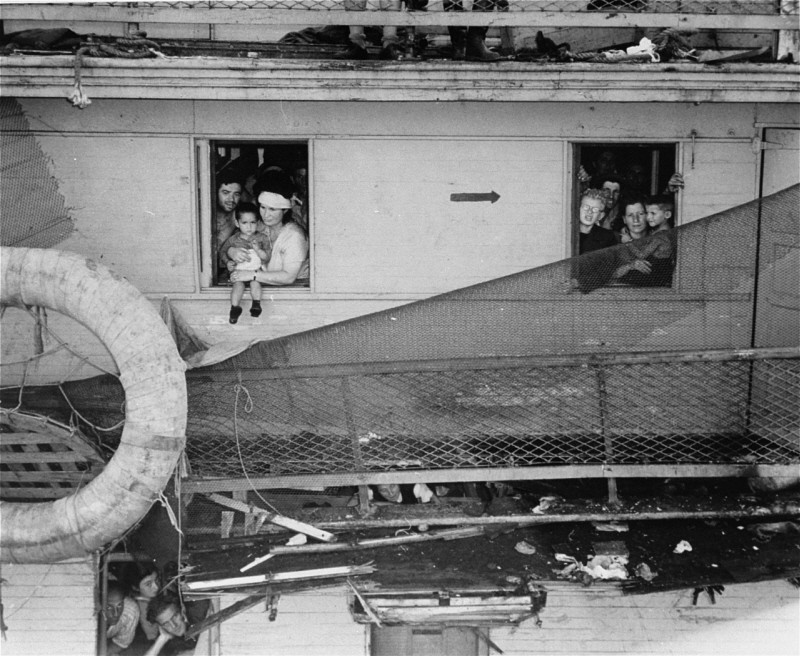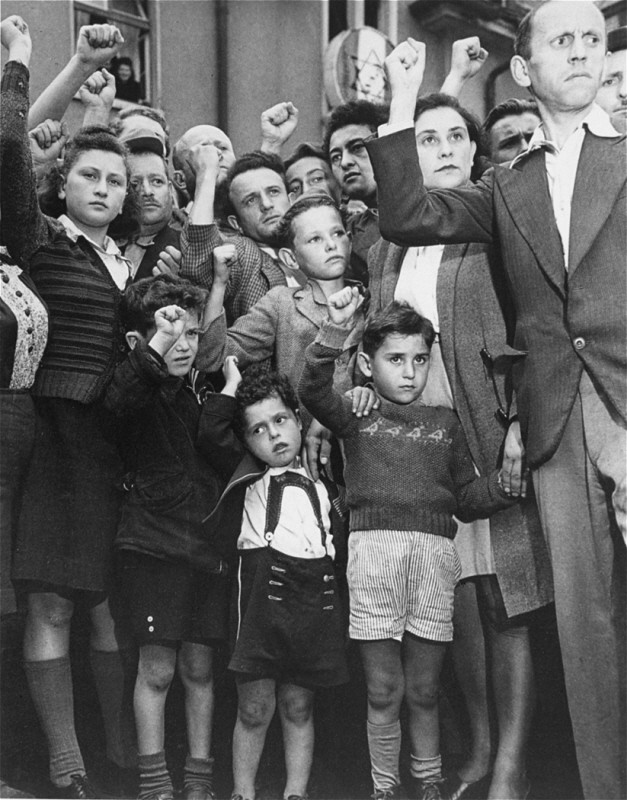
Exodus 1947
The Exodus 1947 was a worn-out US-owned coastal freight passenger ship launched in 1928. Originally called the SS President Warfield, it sailed the Chesapeake Bay between Baltimore, Maryland, and Norfolk, Virginia, for over a decade. Transferred to the British under the Lend-Lease agreement as part of a group of shallow-draft ships, the President Warfield was later deployed in the Normandy invasion (June 1944). After World War II it returned to US waters.
Yet the ship was to take part in one more event which ensured its place in history, symbolizing the struggle for unrestricted immigration into Palestine.
Initially sold as scrap for slightly more than $8,000, the ship was acquired by the Hagana (an underground Jewish military organization). Hagana personnel arranged to dock the ship in Europe in order to transport Jews who sought to illegally immigrate into Palestine. The plight of the ship's passengers would capture the world's attention.
In July 1947, the President Warfield left Sète, France, for Palestine. It carried over 4,500 Jewish men, women, and children, all displaced persons (DPs) or survivors of the Holocaust. Even before the ship (by then renamed the Exodus 1947) reached Palestine's territorial waters, British destroyers surrounded it. On July 18 a struggle ensued between British naval forces and passengers on the ship. A Jewish crew member and two passengers were killed. Dozens suffered bullet wounds and other injuries.
Attempting to make an example of the Exodus 1947, the British towed the ship to Haifa and transferred the passengers onto three navy transports which returned to Europe. The ships first landed at Port-de-Bouc, France, where the passengers were ordered to disembark. When the French authorities refused to forcibly remove the refugees, British authorities, fearing adverse public opinion, sought to wait until the passengers disembarked of their own accord. The passengers, including many orphaned children, forced the issue by declaring a hunger strike which lasted 24 days. Mounting pressure from international media coverage pressed British authorities to find a solution.
The ships sat for three weeks in the sweltering summer heat, but the passengers refused to voluntarily disembark and the French authorities were unwilling to force them to leave. The British government then transported the passengers to Hamburg, where they were interned in camps in the British zone of occupation in Germany.
Displaced persons in camps all over Europe protested vociferously and staged hunger strikes when they heard the news. Large protests erupted on both sides of the Atlantic. The ensuing public embarrassment for Britain played a significant role in the diplomatic swing of sympathy toward the Jews and the eventual recognition of a Jewish state in 1948.

Critical Thinking Questions
- What pressures and motivations may have affected the choice of the refugees to board the Exodus?
- Investigate: Did any of the passengers reach Palestine?
- What responsibilities do (or should) other nations have regarding refugees from war and genocide?

